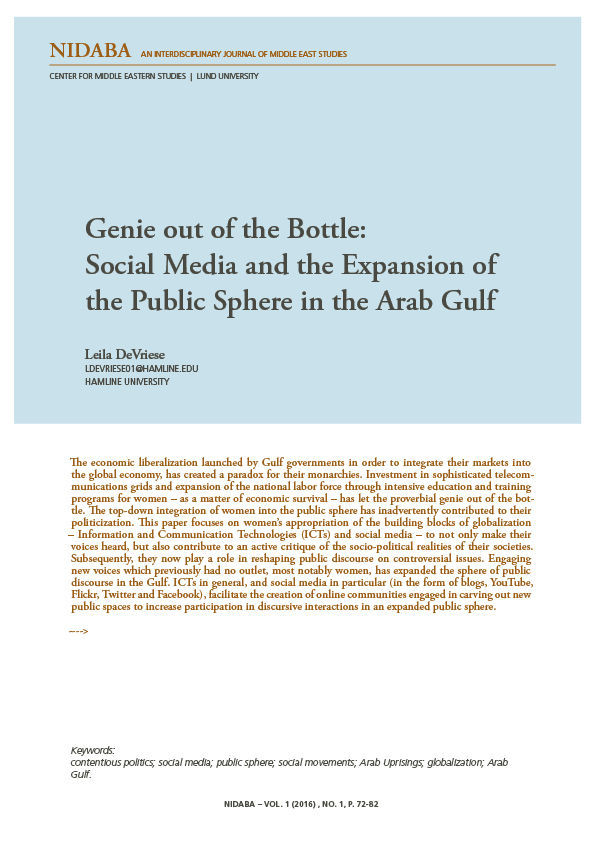Abstract
The economic liberalization launched by Gulf governments in order to integrate their markets into the global economy, has created a paradox for their monarchies. Investment in sophisticated telecommunications grids and expansion of the national labor force through intensive education and training programs for women – as a matter of economic survival – has let the proverbial genie out of the bottle. The top-down integration of women into the public sphere has inadvertently contributed to their politicization. This paper focuses on women’s appropriation of the building blocks of globalization – Information and Communication Technologies (ICTs) and social media – to not only make their voices heard, but also contribute to an active critique of the socio-political realities of their societies. Subsequently, they now play a role in reshaping public discourse on controversial issues. Engaging new voices which previously had no outlet, most notably women, has expanded the sphere of public discourse in the Gulf. ICTs in general, and social media in particular (in the form of blogs, YouTube, Flickr, Twitter and Facebook), facilitate the creation of online communities engaged in carving out new public spaces to increase participation in discursive interactions in an expanded public sphere.
Authors retain copyright and grant the journal right of first publication with the work simultaneously licensed under a Creative Commons Attribution License that allows others to share the work with an acknowledgement of the work's authorship and initial publication in this journal.
Authors are able to enter into separate, additional contractual arrangements for the non-exclusive distribution of the journal's published version of the work (e.g., post it to an institutional repository or publish it in a book), with an acknowledgement of its initial publication in this journal.
Authors are permitted and encouraged to post their work online (e.g., in institutional repositories or on their website) prior to and during the submission process, as it can lead to productive exchanges, as well as earlier and greater citation of published work (See The Effect of Open Access).
The journal provides open access to all accepted manuscripts in hopes of facilitating an exchange of knowldge and informed discussion about the Middle East. Publishing with Nidaba, authors agree to the terms of the Creative Commons Attribution-NonCommercial-NoDerivatives 4.0 International License, which allows others to share the work with an acknowledgement of the work's authorship and initial publication in this journal. Authors retain the copyright to their manuscript and grant the journal the right of first publication.
The content of this journal is licensed under a Creative Commons Attribution-NonCommercial-NoDerivatives 4.0 International License.

